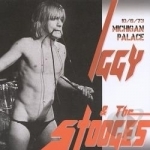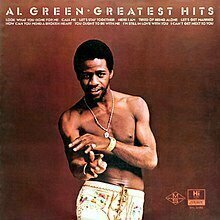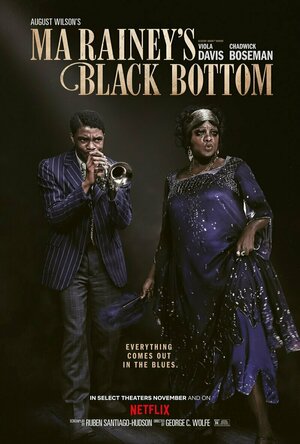
EyesOnYou DashCam Plus
Navigation and Travel
App
EyesOnYou Plus is the ad free version. EyesOnYou App is a dash cam application on you iPhone....
Johnny Marr recommended track Gimme Danger by Iggy And The Stooges in Michigan Palace, 10/6/73 by Iggy And The Stooges in Music (curated)
Rick Astley recommended Greatest Hits by Al Green in Music (curated)
Sarah (7800 KP) rated Ma Rainey's Black Bottom (2020) in Movies
Jan 30, 2021
Set in 1920s Chicago, the film follows a tense and fractious recording session with Ma Rainey and her backing band, old hands Toledo (Glynn Turman), Cutler (Colman Domingo) and Slow Drag (Michael Potts) alongside ambitious young horn player Levee (Chadwick Boseman). Tensions rise between Ma, Levee and the recording studio management (Jeremy Shamos as Irvin and Jonny Coyne as Sturdyvant) as each attempts to control the recording session and play songs that fit best with their own motives. Contributing to the frictions are Levee’s flirtation with Ma’s girlfriend Dussie Mae (Taylour Paige) and her Ma’s stuttering nephew Sylvester (Dusan Brown) as he attempts to introduce Ma’s signature song, Black Bottom.
Ma Rainey’s Black Bottom undoubtedly looks and sounds good. The cinematography and costumes are perfect and entirely in keeping with the 20s Chicago setting. And the blues music is captivating and beautifully made. To be quite honest I would’ve been quite happy to watch and listen to an entire film solely following the band and their music. However whilst it does look and sound good, it is so obviously a film adapted from a stage play and I’m afraid this isn’t a good thing. There’s a limited number of sets and virtually the entirety of the 90 minute run time is set within two rooms in the recording studio, which makes such a short film feel ridiculously drawn out. This isn’t helped by the huge reliance on very long scripted dialogue and conversational scenes. I can’t deny that the writing is good and is helped by strong performances from everyone involved, but there’s just too much dialogue. This might work on the stage, but on screen it doesn’t quite translate. There’s that much dialogue that the majority of scenes become too heavy and bogged down and sadly almost entirely forgettable. For me a film needs to balance dialogue with actual events and actions, and I’m afraid aside from the final act, nothing much happens here.
Fortunately this is at least boosted by some stellar performances. Viola Davis is brilliant as the spirited Ma Rainey, even if Ma herself as a character is rather unlikeable with some questionable motives for her actions and manners. The star however is the late Chadwick Boseman. While it’s very off putting to see how obviously thin and ill he was filming this, his performance is outstanding. He brings life and fun and heart to every scene he’s in and gives this film a massive boost. Even the drawn out dialogue heavy scenes become enthralling when he’s talking and the emotions on show are spectacular. Despite Viola Davis being the star as Ma, it’s Boseman that carried this film entirely on his shoulders. If he doesn’t win a posthumous Oscar for this, it’d be criminal.
Ma Rainey’s Black Bottom is a shining example of stellar performances, most notably Chadwick Boseman. It’s just a shame that the rest of the film doesn’t quite meet the high standards set by its stars.

White Noise Free: sounds for sleep and relaxation
Health & Fitness and Productivity
App
Do you have trouble going to sleep? Are you traveling on a plane and need a quick power nap? Does...

White Noise
Health & Fitness and Lifestyle
App
Do you have trouble going to sleep? Are you traveling on a plane and need a quick power nap? Does...

AirPlayer - video player and network streaming app
Utilities and Entertainment
App
AirPlayer is an application for streaming video*, music*, photo* from UPnP/DLNA media servers to...

Recorder App Pro - Audio Recording and Cloud Share
Business and Productivity
App
***Over a million users choose Recorder App! Thank you for your support!*** Let's talk beyond...

Recorder App Lite: Audio Recording and Cloud Share
Business and Productivity
App
Let's talk beyond recording, let's talk sound! Recording App Pro is an all-in-one recording...



